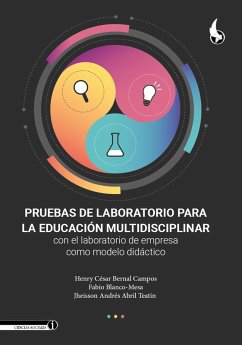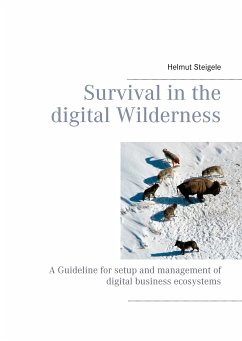
Monograph Association SEPIKE (eBook, ePUB)
Edition 26
Redaktion: Sepike, Association
Versandkostenfrei!
Sofort per Download lieferbar
Statt: 14,95 €**
7,49 €
inkl. MwSt. und vom Verlag festgesetzt.
**Preis der gedruckten Ausgabe (Gebundenes Buch)
Alle Infos zum eBook verschenkenWeitere Ausgaben:

PAYBACK Punkte
0 °P sammeln!
In the globalized world under rapidly developing conditions of the digital economy, it is almost impossible to keep pace with the multi-dimensional informational flow that appears daily on the Internet and in real life. Scientists whose papers and researches are dedicated to the innovation issues, their different types, life cycles, evaluation of effectiveness and practical applicability, all of them agreed on the appearance of so called unclassifiable digital innovations. We have to be precise with this definition. First, digital innovations have penetrated inside all spheres of life and busi...
In the globalized world under rapidly developing conditions of the digital economy, it is almost impossible to keep pace with the multi-dimensional informational flow that appears daily on the Internet and in real life. Scientists whose papers and researches are dedicated to the innovation issues, their different types, life cycles, evaluation of effectiveness and practical applicability, all of them agreed on the appearance of so called unclassifiable digital innovations. We have to be precise with this definition. First, digital innovations have penetrated inside all spheres of life and business nowadays. It is impossible to make any operation without using modern advanced technologies (actually, they are traced from being advanced not so far till usual/adapted/everyday). And the main criterion making innovations 'everyday' is the time. Whether it's the simplest operation of searching for a geographical location, the operation of buying or selling, the simplest transaction, communication, or the complicated operation of managing a business based on the business modeling, the use of modern marketing digital technologies, modeling of the ecological future and building long-term forecasts, all of abovementioned requires Internet usage, modern devices or other smart technologies. Thus, such variety of activity leads to complexity of digital innovation classification. Second, digital space is unlimited and unlimited by its nature that results just in generalization of common categorical directions. Third, each process, activity or even action take place in a concrete condition. It should be said, world economy transit to a personalized level, i.e. move from macro- via meso-, throughout of micro- to the digitally behavioral economics. That is why, in our opinion, it is difficult to classify digital innovations. Nowadays, it is not a top secret that with rapid digitalization paces, governments miss effective tools of regulation or intervention. More and more scientific publications, personal blogs and journalistic reports expose the problem of government insolvency in its intervention policies and the unjustifiedness of their actions. Neoclassic, neo-monetarist, neo-institutional and other neo-economic theories are unable to explain today's rapidly changing situation around the globe. They have exhausted themselves: there is no panacea that can revive the mega-economies of the highly developed countries that are sluggishly falling into the recession.
Dieser Download kann aus rechtlichen Gründen nur mit Rechnungsadresse in A, B, BG, CY, CZ, D, DK, EW, E, FIN, F, GR, H, IRL, I, LT, L, LR, M, NL, PL, P, R, S, SLO, SK ausgeliefert werden.













